A few months ago, I talked briefly about escapism in games, when it’s purposeful, and when it’s not. Over the past few weeks, we’ve slowly meandered down this road as to what makes games fulfilling, including how we relate to our avatars and why we tend to like heroes who fail. In this little series finale, we’re going to take a more macro look at video games, away from the characters and gripping stories, to what video games psychologically provide us to make us happy.
We’re going to talk about three main concepts that aid in our experience of happiness: flow, work, and purpose.
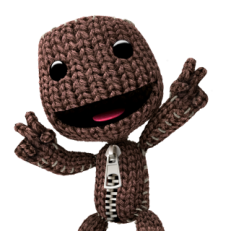
One With the Flow
The first of these, flow, is a concept that psychologist Mihaly Csikzentmihalyi (mee-hi cheek-sent-mee-high) use to describe a state of peak performance of a difficult task. In order to achieve a state of flow, the task must exist within a “sweet spot” of difficulty. On one hand, it requires a certain challenge to your ability level in order to maintain interest (and avoid boredom), yet it must not challenge too much to as to cause frustration.
Flow is usually characterized by the merging of awareness and action, that is, you no longer need to consciously think about what you are doing, but rather your brain and body feel perfectly unified when performing the task. You feel a strong sense of control, as well as heightened concentration on the task, a loss of self-consciousness, and even an altered perception of time. Activities that may result in experiencing flow provide direct and immediate feedback to the person. For a very readable article about flow, you can check out this website talking about happiness.
Most often, athletes and musicians report instances of flow when performing their crafts, sometimes referred to as being “in the zone.” Of course, flow can happen during any activity that requires both mental and physical participation, which includes video games.
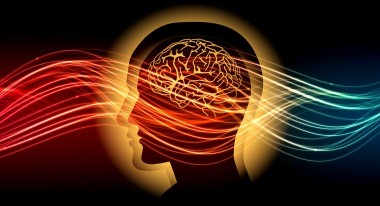
While flow may seem like it is a state of euphoria, being in a state of flow is not like feeling extreme happiness or contentment. Rather, flow is the absence of interference from the conscious (i.e., thinking) mind. You are suddenly only acting on perfect, practiced experience, with no interfering thoughts. None, not even “what do I do next?” It all happens naturally.
As Mr. Csikzentmihalyi summarized:
“The best moments usually occur when a person’s body or mind is stretched to its limits in a voluntary effort to accomplish something difficult and worthwhile. Optimal experience is thus something we make happen.”
And thus we move to our next point:
Where Work is Fun and Play is Hard
If we are in a career that we like, our work responsibilities are generally seen benevolently, even if our responsibilities can be difficult. For example, during the day I am a therapist who works with children with developmental disabilities, and even when I’m working with a “difficult” client, I am enjoying myself (or, if it’s a very bad day, I never resent the challenges that I’m facing.). The key point here is that the challenge is one I agreed to, or that I “signed up for.” On the other hand, I don’t particularly enjoy the paperwork end of my job: I didn’t become a therapist because I love typing up reports, but I have to do it anyway.
When people begin to feel frustrated toward their jobs, it is usually because they think that their talents are being wasted on tasks that are too easy, or are required to complete a time-consuming or difficult task that they did not agree to, like if suddenly my job was 90% report-writing and only 10% actually working with people.
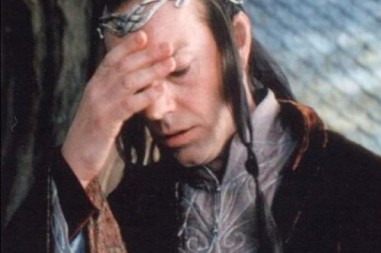
But when we play a video game, we agree to complete a difficult task (or goal) that requires cognitive work (i.e., playing the game), and agree to the arbitrary rules and limitations put on us as we try to complete that goal. Because we have agreed to the challenge we will undertake, the rules we have to follow, and the reward/feedback we will receive, we find the cognitively demanding task of playing a video game to be enjoyable.
If we stop finding the game “fair” (we no longer agree to the rules), or don’t like the feedback we’re getting (not enough rewards in-game or emotional payoff outside of the game), we can stop playing and agree to another challenge. By controlling the challenges we agree to face, we can always feel like we are fulfilling a purpose and operating at our optimum efficiency (and therefore tempting the elusive experience of flow).
Fun With a Purpose
Most obviously, games give us an activity to do that is outside of our experience, but more importantly, that activity has a purpose.
Players want to achieve their in-game goals, and achieving their in-game purpose in something called an extrinsic reward – the game gives you something for your accomplishment, either a level achievement, a score, an in-game item, or a satisfying visual or sound signal that tells you that you did something right.
Perhaps more importantly, achieving these in-game goals also provides us with intrinsic rewards, as well. These rewards come from within us. We feel proud or accomplished or happy or relaxed, and we like feeling those things, so those feelings are the reward for playing the game.

By manipulating the extrinsic and intrinsic rewards we experience, we are given a powerful tool to regulate our mood and emotions. Video games can give us an emotional “fix” when we experience a “negative” mood such as feeling stressed, overwhelmed, sad, or otherwise unfulfilled, as they provide structure/ rules (which our brains like), achievable tasks (which our brains also like), and immediate feedback (again, which our brains like).
Putting the Pieces Together
Let’s face it: reality wasn’t designed to make us happy. Reality doesn’t give immediate positive feedback every time we do something noteworthy (if it gives any feedback at all), it doesn’t clearly outline the rules, give clear navigation points for your goals, and certainly doesn’t play fair. As humans, we have adapted to this type of situation, and are able to find patterns and order in our reality – if you’re a human who can function in the real world, you have experienced this adaptation.

Games, on the other hand, are designed to fulfill our brain’s wants. They give us an opportunity to think creatively about problems and come up with new solutions. We can work at an optimum level of functioning, right at the peak of our abilities where our brains crave to work, and experience the thrill of victory after completing a task. And, let’s face it, there are no real consequences to your actions; in-game, you can reload and try again no matter how badly you mess up, and the real world moves forward no matter how good, bad, or evil you are during a game.
Games fulfill needs that don’t always get fulfilled in real life. Games give us power, purpose, and easy-to-see accomplishments. They offer us community when we may feel alone. They fulfill emotional needs we may leave unaddressed in real life.
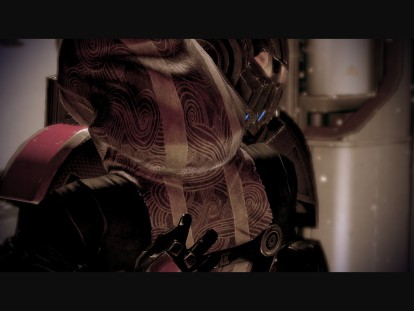
In theory, we should try and seek these in-game experiences in real life, as well as in our games. Our experience in games should support our real-life needs, that is, working through a difficult project, seeking out information when we need it, and not being afraid to walk away and come back later are all skills we practice within the safety of our video games.
When they work right, video games can be a great tool for helping us understand and achieve tasks. They can put our brains into a mindset of creative thinking, and we can learn how to reach out when we need more information. They can give us a way to self-regulate and recharge when real life gets a little too real. But what happens when you have too much of a good thing?
Find out next time in the final part of this mini-series!
What was the most profound experience you’ve ever had because of a video game? Has a game ever changed the way you think in real life? Let me now in the comments!
Until next time, thanks for stopping by, and I’ll see you soon!
~Athena
PS With the holidays coming up,the second part of this idea – which dabbles in addiction – won’t be up until January. It seems very Scrooge-ish to talk about gaming addiction right around the holidays, so we’re going to take the next few weeks to talk about some happier topics! See you next week!
What’s next? You can like and subscribe if you like what you’ve seen!
You can also:
– Support us on Patreon, become a revered Aegis of AmbiGaming, and access extra content!
– Say hello on Facebook, Twitter, and even Google+!
– Check out our Let’s Plays if you’re really adventurous!
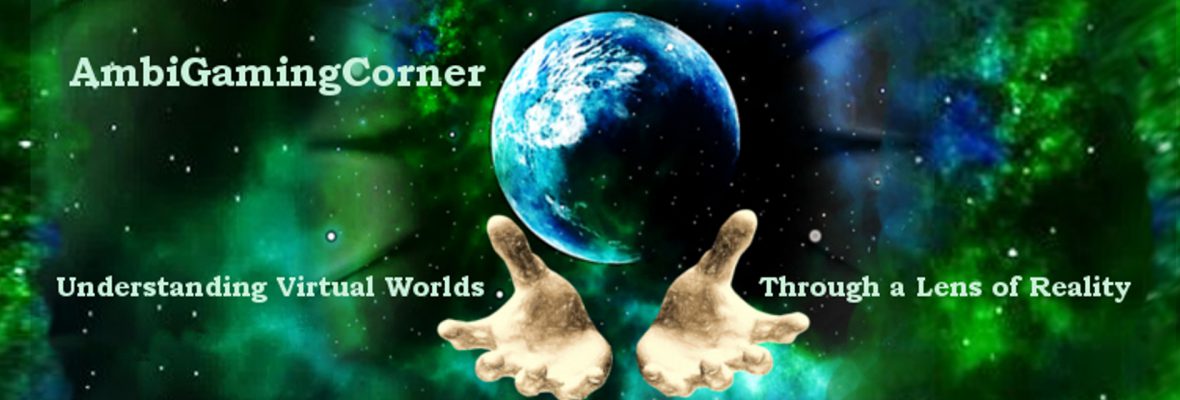

Interesting stuff here. Reminds me a lot of the theories we’re presented with on teacher training days.
LikeLiked by 1 person
Definitely! The psychology that works in video games to keep us “working” and “learning” are the same ones that work when applied in the real world!
LikeLike
Very awesome post! I’m really interested in learning about psychology stuff, but I don’t have much knowledge in the area. Finding out that I was an INFJ answered a question that had been troubling me my whole life: “What’s wrong with me?” lol If I could do it all over again, I would have pursued a career as a psychiatrist instead of electronics.
You’ve already read me rambling about how Lightning’s games have changed my life, so I’ll spare you further dialog on that subject. 🙂 Admittedly, I’ve been using video games as an coping mechanism since I was 5. The reason I started gaming in the first place is a little depressing actually… Anyway, having a sandbox to escape off into was a blessing while I was growing up. As that “quiet kid” no one understood, and many picked on, I only had a few close friends. I have many happy memories of playing various games with them after school. When I was a cranky teenager, I avoided rampant drug use and other angst-y teenage things by “door slamming” everyone, and falling back into the video game world. Adult me uses them to escape from harsh reality and to simply have fun. Also, a little false sense of achievement does wonders for my confidence level, haha. Honestly, I’m not sure what my life would be like today if video games were never a part of it. I know for sure i wouldn’t be the same person I am today without them.
I can see how addiction themes would sort of kill the Christmas buzz, but I’m looking froward to reading the final part of your series. 🙂
LikeLike
Glad you liked the article! Yeah I lost myself in stories growing up; I was sick a lot as a kid and so didn’t spend much time at school. Book characters became my friends instead, especially in Harry Potter. I read the first two when I was 12, and literally grew up with the gang (my first fanfiction was a self-insert in Harry Potter… not so much a Mary Sue, though, because the story was literally my character sitting around doing incredibly boring things like going to the library and hanging out in Hogsmeade with her friends). Once video games had actual storylines, I would get lost in them, too. Like you said, they gave an outlet for all kinds of feelings.
It’s not false achievement! You really did achieve in-game goals! You had to work and persevere to accomplish them! Just because they didn’t happen in the physical world doesn’t mean that they are any less relevant for your self-esteem, work ethic, or anything else! (Yes, I will sit here and be a cheerleader if I have to).
Thanks for your support! I’m sure video game addiction is going to ruffle some feathers… 🙂
LikeLiked by 2 people
I lucked out and games had decent stories when I was growing up. I learned to read because I wanted to understand what the words in my games were saying. Diddy Kong Racing had a ridiculous story about an evil space pig ruining a tiger’s birthday party, but little kid me loved it! 🙂 I was never big on reading books but I did, and still do, enjoy writing stories. It’s another great outlet for feelings and stuff.
You’re right! I love that proud feeling I get when I get a PlayStation Platinum trophy or all the Xbox Achievement points. The internet needs more cheerleaders and less angry trolls, haha.
I can’t wait to see the feathers fly 🙂
LikeLiked by 1 person
Okay, I know everything you said was very important, but…
Platinum trophy????
(kneels and bows) I’m not worthy… I’m not worthy…
LikeLiked by 1 person
I don’t like to brag, but I actually have 10 Platinum Trophies, including ones for the Final Fantasy XIII trilogy *puts on shades and crosses arms*
LikeLiked by 1 person
Well, consider me officially *dealing with it*!!! haha
That’s really cool!!
LikeLiked by 1 person
I can’t pinpoint an exact point in which a specific game affected me, but I can say that the best experiences are the ones that make me sit back and challenge my own viewpoints. Very few games challenge people emotionally, while most feign at trying. The moral choices presented in games are often just “Pet the dog or kill the dog” choices. Ones that venture outside of that are the ones that make me sit back and ponder.
LikeLiked by 1 person
Ambiguous choices definitely add a layer of meaning to the games that enhance the overall experience! That’s one of the reasons I like a lot of BioWare games, because while they do have the obvious good/evil options, a lot of choices are very nuanced with no clear right or wrong answers.
LikeLiked by 1 person
That’s something I’ve enjoyed about DA:I, and hope is carried over to ME: Andromeda.
LikeLiked by 1 person
What an amazing assessment and again spot on! I’m very lucky to have a job that does fit the challenging but fulfilling requirements. I love problem solving and going through particular steps in order to achieve it. There’s enough variety in my occupation that it’s not really boring even though it’s similar across months. I do control accounting by day, am allowed to work at my own pace, have certain tasks that need to be completed, and will often have questions sent to me from the client or other people looking for answers. I also luck out in having management that doesn’t hang over my shoulder, but rather respects the skills of me and my coworkers with the biggest frustration being other groups not doing their jobs, which creates more work for me. Oddly enough, I see writing (which I consider the other job I’m not paid for “yet”) in a similar fashion. There’s a problem solving aspect to it as well. It’s mentally challenging and fulfilling because it’s something I *have* to do. I was lucky to fall into the control accounting job, which fits my mindset perfectly and aligns with how to approach writing: problem solving.
I gravitate to games that fulfill the same thing. I love how you’re perfectly putting into words exactly what why gaming is such a joyful experience and finding that sweet spot is oh so magical. I’ve been using it as an escape much more lately. In a world that seems so much less rational, diving into a world that has rules and boundaries is a sweet escapade. Fantastic article.
LikeLiked by 1 person
Thank you for your very kind reply 🙂 That’s so great that you have a job (or maybe two!!) that are challenging and fulfilling for you. It makes the days go by smoothly, at the very least!
That’s the funny thing about our brains: we think they want to do nothing in order to relax and be happy, but our brains are actually happiest when challenged and are able to hum along at an optimal “processing load,” if you will. Games are definitely a great place to find that sort of work if you’re looking for it (and yes, this world could stand for a little more rationality); I tend toward the RPGs and adventure/puzzle games for that reason, as well.
I’m glad the articles are resonating with you 😀 I wasn’t sure when I started this blog whether I’d find anyone else who analyzed (over-analyzed?) video games like me or would appreciate it even if they didn’t. I’m so very flattered and humbled at the response I’ve gotten thus far. Thank you for reading!!
LikeLiked by 1 person
There are people who want to relax/not think, but I’ve mostly found that in the older generation. They want entertainment, but not necessarily a mental challenge. Now this is me assuming that we’re around the same age hehe.
Over-analyzing video games and every other narrative is pretty my life. It’s what I spend my days thinking about and nights writing about. I look at blogging like this. I’m not super worried about making it big. I’m going to write about what I wan to say and hope it resonates with people. I think you’ll always find common cause if you do what you love and write what you want! It’s a lot better than just doing something for views. There’s much more substance and heart to it 🙂
LikeLiked by 1 person
Don’t worry, I fall securely in “not the older generations” category haha.
Thank you again for the encouragement 🙂 You’re right; it’s definitely about doing what you love and sharing that with other people!
LikeLiked by 1 person
I always like to say I’m old as hell, but I just do that to entertain my younger friends :p I kind of ride the line between using internet lolspeak and shaking my fist and screaming “Get off my lawn!” Granted I don’t technically HAVE a lawn, but you get the gist.
LikeLiked by 1 person
I like the correlation between enjoyment from work and enjoyment from playing games. As you alluded to, completing a video game can feel oddly productive. I think that’s one of the reasons I’ve been enjoying forcing myself to play games that wouldn’t otherwise be at the top of my list, just the act of working through them feels productive, and that’s been giving me a joy in playing that I wouldn’t have otherwise. Changes the purpose around a bit from what I’d otherwise be looking for, I suppose.
LikeLiked by 1 person
Thanks! I think sometimes we forget that we can get the same enjoyment from the physical world as we can from virtual ones, so I’m glad you liked the comparison 🙂
That’s interesting what you say about working through a game you might not have otherwise picked up. You’re right, though, it’s still a job for your brain to complete, and even if it wasn’t one of your top games to pick, you still willingly picked it up, so the work isn’t so bad! And you get to experience some new games in the process!
LikeLiked by 1 person
Games haven’t had any single impact on my life, as much as they have simply influenced my thinking and creativity, regarding interactivity and storytelling. The unique form of video games has allowed my mind to expand beyond the linearity that other mediums are confined by.
LikeLiked by 1 person
Thanks for your comment! Yes, you’re right. Any exposure to new stories or ideas will change the way we think about things, especially in a three-dimensional world (or a 3D world on a screen, at least). I’m so glad to hear that games have had such a profound effect on you and your creativity. Do you write or design games?
LikeLike
I really nice post. The part about flow reminds me of times where I’m doing something so well without thinking about it and then I realize what I’m doing and then my effortless streak ends lol.
LikeLiked by 1 person
Thank you for commenting! That’s exactly what flow is! That’s great that you’ve experienced it 🙂 And yes, flow can certainly be fickle and fleeting like that!
LikeLiked by 1 person